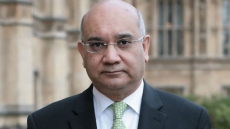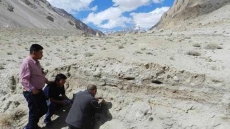Republican presidential nominee Donald Trump's real estate holdings in the US have at least $650 million in debt - twice the amount than the public filings he has made as part of his bid for the White House, according to an investigative report by the New York Times.
The report says that though Trump has sold himself as a businessman who has made billions of dollars and is beholden to no one, an enquiry by the Times has found that Trump's fortunes depend deeply on a wide array of financial backers, including one he has cited in attacks during his campaign.
It says that an office building on Avenue of the Americas in Manhattan, of which Trump is part owner, carries a $950 million loan.
Among the lenders are: the Bank of China, one of the largest banks of China - a country that Trump has railed against as an economic foe of the US, and Goldman Sachs, a financial institution he has said controls Hillary Clinton, the Democratic nominee, after it paid her $675,000 in speaking fees.

"Real estate projects often involve complex ownership and mortgage structures. And given Mr. Trump's long real estate career in the United States and abroad, as well as his claim that his personal wealth exceeds $10 billion, it is safe to say that no previous major party presidential nominee has had finances nearly as complicated," it says.
The Times says that its examination "underscored how much of Mr. Trump's business remains shrouded in mystery. He has declined to disclose his tax returns or allow an independent valuation of his assets".
But if elected president, Trump would have substantial sway over monetary and tax policy, as well as the power to make appointments that would directly affect his own financial empire. He would also wield influence over legislative issues that could have a significant impact on his net worth, and would have official dealings with countries in which he has business interests, it says.

Earlier in the campaign, Trump submitted a 104-page federal financial disclosure form. It said his businesses owed at least $315 million to a relatively small group of lenders and listed ties to more than 500 limited liability companies. Though he answered the questions, the form appears to have been designed for candidates with simpler finances than his, and did not require disclosure of portions of his business activities.
Besides finding that companies owned by Trump had debts of at least $650 million, The Times discovered that a substantial portion of his wealth is tied up in three passive partnerships that owe an additional $2 billion to a string of lenders, including those that hold the loan on the Avenue of the Americas building. If those loans were to go into default, Trump might not be held personally liable, but the value of his investments would sink.

Trump has said that if he were elected president, his children would be likely to run his company.




